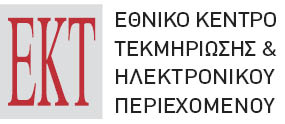A five-year study related to autonomy in foreign language learning, which in this instance was English as a Foreign Language, was implemented in the School of English (SOE) of the Faculty of Philosophy, Aristotle University of Thessaloniki and involved the investigation of peer-assessment and self-assessment of writing and speaking skills as a means to promote greater autonomy in language learning. The study, entitled the Assessment for Autonomy Research Project (AARP), consisted of three phases extending over the five academic years 2005-2010: a Preliminary Study (2005-2006), the Main Study (2006-2009) and a Post-Study (2009-2010). The three study phases were conducted with students on the SOE 1st Year course, Language Mastery I (LM I). Subjects used in the AARP study were convenience samples from the Instructor-Researcher’s own LM I course groups. Quantitative data concerning peer-, self- and instructor assessment of both writing skills and speaking skills was gathered by means of criterial assessment check-lists for two home writing assignments and one in-class oral presentation, prepared at home. The same criteria were used by all participants, facilitating triangulation of results and their analysis, while qualitative data was gathered by means of assessment questionnaires, with responses given on a Likert scale, which could be analysed quantitatively, as well as offering comments which could be selected and presented thematically. The research is based on the working hypothesis that by adopting a model for language learning which allows for variation and modification in language learner behavior, on a continuum between heteronomy and autonomy, and by accepting a definition of autonomy which allows, at the same time, for differences in disposition and uptake, and for both universal principles and local conditions, it is possible to view engagement with autonomy in language learning as varying or fluctuating in degrees. The research questions aimed to establish if learners could assess the oral and writing skills of their peers and of themselves with objectivity and reliability, using the same predetermined criteria, and to see if there was evidence that learners would assume ownership of the assessment criteria checklists and use them to exercise judgement in an atmosphere of cooperation and trust. Although the period of student involvement in peer- and self-assessment processes was relatively short, the results seem to indicate that it was possible for students to overcome their existing preconceptions and beliefs about learning and engage in reflection and the necessary critical and criterial thinking demanded in the production and assessment of assignments. Thus, they accepted a shifting and recalibrating of power over assessment and moved towards assessment literacy and away from the heteronomy to which they were accustomed. Using peer-assessment as a stepping-stone towards self-direction and thus exercise a greater degree of autonomy, developing skills which will be useful to them throughout a lifetime of living, learning, and, in the majority of cases, language teaching.
 Εθνικό Κέντρο Τεκμηρίωσης και Ηλεκτρονικού Περιεχομένου (ΕΚΤ)
Εθνικό Κέντρο Τεκμηρίωσης και Ηλεκτρονικού Περιεχομένου (ΕΚΤ)



